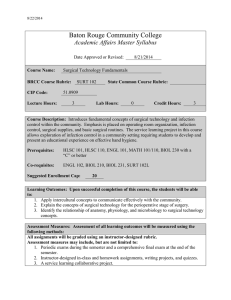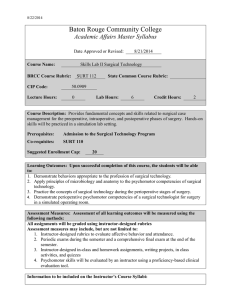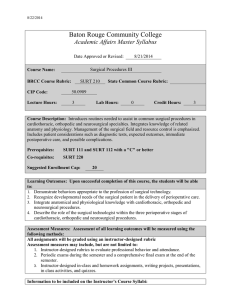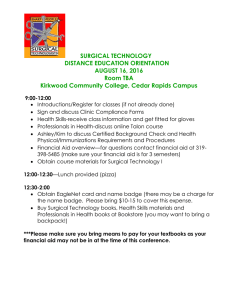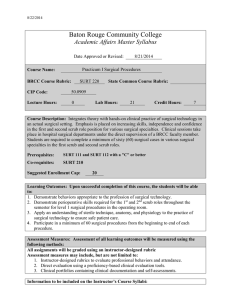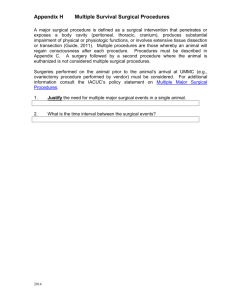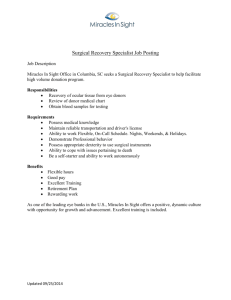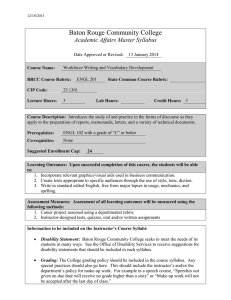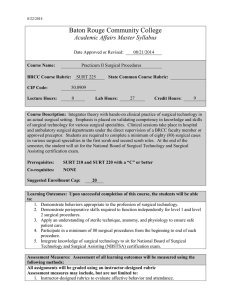Baton Rouge Community College Academic Affairs Master Syllabus
advertisement
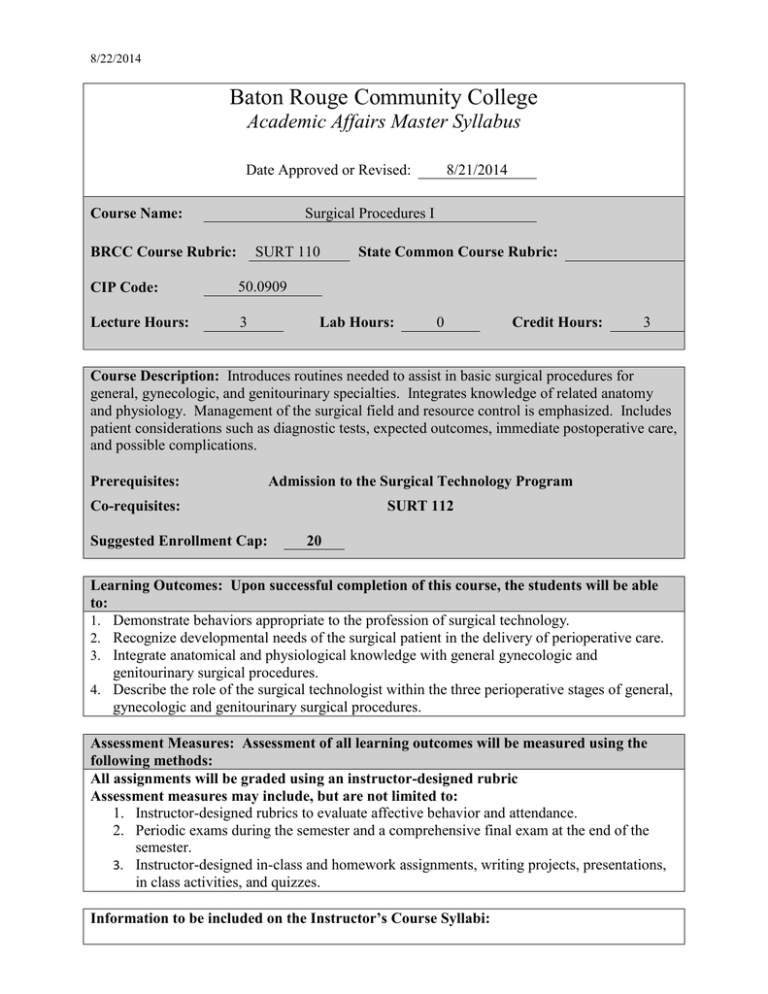
8/22/2014 Baton Rouge Community College Academic Affairs Master Syllabus Date Approved or Revised: 8/21/2014 Surgical Procedures I Course Name: SURT 110 BRCC Course Rubric: CIP Code: 50.0909 Lecture Hours: 3 State Common Course Rubric: Lab Hours: 0 Credit Hours: 3 Course Description: Introduces routines needed to assist in basic surgical procedures for general, gynecologic, and genitourinary specialties. Integrates knowledge of related anatomy and physiology. Management of the surgical field and resource control is emphasized. Includes patient considerations such as diagnostic tests, expected outcomes, immediate postoperative care, and possible complications. Prerequisites: Admission to the Surgical Technology Program Co-requisites: SURT 112 Suggested Enrollment Cap: 20 Learning Outcomes: Upon successful completion of this course, the students will be able to: 1. Demonstrate behaviors appropriate to the profession of surgical technology. 2. Recognize developmental needs of the surgical patient in the delivery of perioperative care. 3. Integrate anatomical and physiological knowledge with general gynecologic and genitourinary surgical procedures. 4. Describe the role of the surgical technologist within the three perioperative stages of general, gynecologic and genitourinary surgical procedures. Assessment Measures: Assessment of all learning outcomes will be measured using the following methods: All assignments will be graded using an instructor-designed rubric Assessment measures may include, but are not limited to: 1. Instructor-designed rubrics to evaluate affective behavior and attendance. 2. Periodic exams during the semester and a comprehensive final exam at the end of the semester. 3. Instructor-designed in-class and homework assignments, writing projects, presentations, in class activities, and quizzes. Information to be included on the Instructor’s Course Syllabi: Disability Statement: Baton Rouge Community College seeks to meet the needs of its students in many ways. See the Office of Disability Services to receive suggestions for disability statements that should be included in each syllabus. Grading: The College grading policy should be included in the course syllabus. Any special practices should also go here. This should include the instructor’s and/or the department’s policy for make-up work. For example in a speech course, “Speeches not given on due date will receive no grade higher than a sixty” or “Make-up work will not be accepted after the last day of class.” Attendance Policy: Include the overall attendance policy of the college. Instructors may want to add additional information in individual syllabi to meet the needs of their courses. General Policies: Instructors’ policy on the use of things such as beepers and cell phones and/or hand held programmable calculators should be covered in this section. Cheating and Plagiarism: This must be included in all syllabi and should include the penalties for incidents in a given class. Students should have a clear idea of what constitutes cheating in a given course. Safety Concerns: In some programs this may be a major issue. For example, “No student will be allowed in the safety lab without safety glasses.” General statements such as, “Items that may be harmful to one’s self or others should not be brought to class.” Library/ Learning Resources: Since the development of the total person is part of our mission, assignments in the library and/or the Learning Resources Center should be included to assist students in enhancing skills and in using resources. Students should be encouraged to use the library for reading enjoyment as part of lifelong learning. Expanded Course Outline: I. II. III. IV. General Surgery Obstetric and Gynecological Surgery Genitourinary Surgery Surgical Care of Special Populations 2
